Now, Even Soil Is Accelerating Climate Change
Greenhouse gases from cattle, fertilizers, manure and agriculture mean that human activities have turned the land and soil into part of the global warming machine.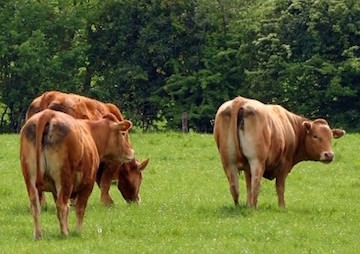
By Tim Radford / Climate News Network
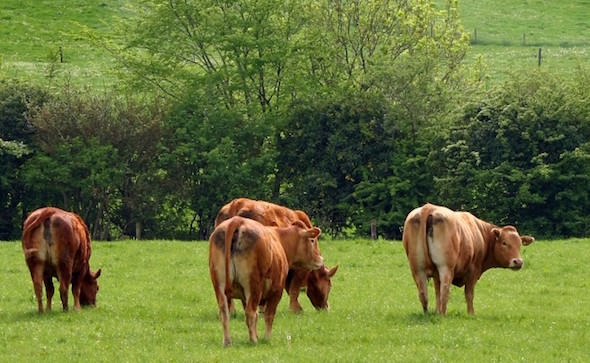
Climate change is being accelerated by gases such as methane emitted by cattle. (Kman999 via Flickr)
LONDON — In the great book-keeping of climate change, scientists have just discovered a big mistake. They have been wrong, they now think, to count on the mountains, the plains, the forests and the grasslands as an agency that slows climate change by absorbing carbon dioxide.
It does absorb carbon dioxide. But the chilling news is that the soil itself may be making the world warmer.
That is because humans have changed the way the landscape and its living things works, and now — thanks to those other greenhouse gases, methane and nitrous oxides, from cattle, fertilisers, manure and agriculture — the terrestrial biosphere is actually accelerating climate change.
Twenty-three scientists from 16 laboratories and institutions report in Nature journal that they re-examined the sums on which climate forecasts depend.
They concluded: “We find that the cumulative warming capacity of concurrent biogenic methane and nitrous oxide emissions is a factor of about two larger than the cooling effect resulting from the global land carbon dioxide uptake from 2001 to 2010.”
Cause for alarm
This doesn’t change climate science’s most immediate calculations — that global warming is a fact, and an increasing cause for alarm.
In the last century, thanks to the use of fossil fuels and the destruction of the forests, carbon dioxide ratios in the atmosphere have risen from about 280 parts per million to just 400ppm, and global average temperatures have risen by 1°C and could rise by 4°C or more unless drastic action is taken.
But the finding does change the thinking about the action that should be taken. At the heart of all climate forecasting lie calculations about the carbon cycle. Green things use the sun’s energy to build plant material from atmospheric carbon dioxide, some of which gets back into the atmosphere when the plant dies, but some of which is then buried and removed from circulation.
And even though humans have excavated fossil plant material in the form of oil, gas and coal, the process goes on. Climate forecasters have been able to assume that the forests and the savannahs went on absorbing atmospheric carbon.
“We must devise strategies that target the biogenic
emissions of these other greenhouse gases
if we are to change the course of climate change”
But although carbon dioxide is the most important greenhouse gas, it is not the only one.
Hanqin Tian, director of the International Centre for Climate and Global Change Research at Auburn University in the US, and colleagues looked at the atmospheric traffic of carbon dioxide, methane and nitrous oxide caused by human activity over the last three decades.
They then subtracted all those emissions that would have occurred naturally, long before anyone mined coal or drilled for crude oil.
Their conclusion is that the human impact of methane and nitrous oxide emissions — from such sources as dairy farms, rice paddies and wheat fields — far outweighed the terrestrial uptake of carbon dioxide. That is, humans have turned the land and its soil into part of the global warming machine. The continents and islands have become contributors to climate change.
Wake-up call
“This study should serve as a wake-up call to governments, policymakers and individuals around the world,” says one of the study’s co-authors, Anna Michalak, a researcher in the Carnegie Institution’s Department of Global Ecology.
“We must expand our focus and devise strategies that target the biogenic emissions of these other greenhouse gases if we are to change the course of climate change.”
And another of the report’s authors, Chaoqun Lu, assistant professor of ecology and evolutionary biology at Iowa State University, says: “Without human activity, the terrestrial biosphere would be neutral. But we found that the terrestrial biosphere emits enough greenhouse gases to become a net contributor to global climate change.”
Tim Radford, a founding editor of Climate News Network, worked for The Guardian for 32 years, for most of that time as science editor. He has been covering climate change since 1988.
Your support matters…Independent journalism is under threat and overshadowed by heavily funded mainstream media.
You can help level the playing field. Become a member.
Your tax-deductible contribution keeps us digging beneath the headlines to give you thought-provoking, investigative reporting and analysis that unearths what's really happening- without compromise.
Give today to support our courageous, independent journalists.
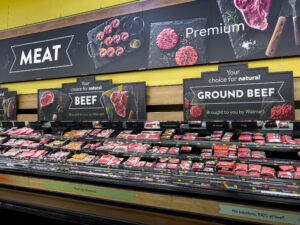
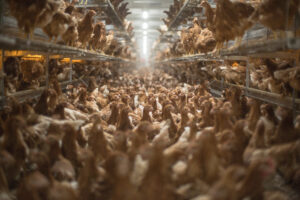
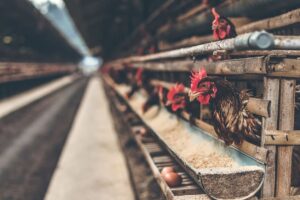

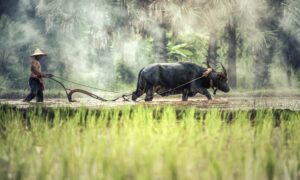

You need to be a supporter to comment.
There are currently no responses to this article.
Be the first to respond.